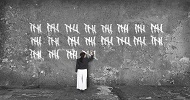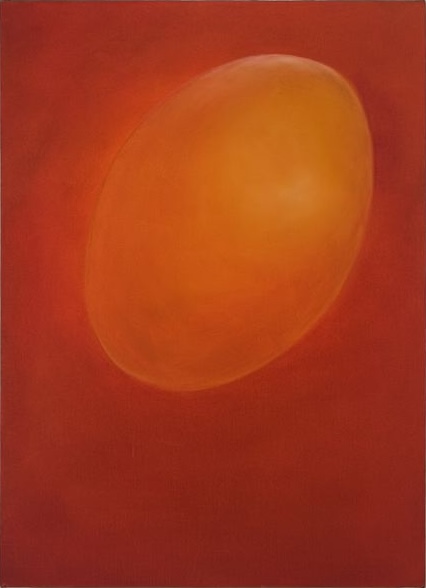Use this Omer calendar to contemplate weekly and daily themes based on the kabbalistic sefirot (divine emanations) and middot (values or virtues).
The week of HESED — compassion, kindness, flowing love.
We focus on the middah of TZEDEK — “righteousness.”
“What is hateful to you, do not do to your fellow human being.” R. Mendel of Satanov associates tzedek with lovingkindness.
DAY ONE — HESED of HESED — Act kindly where kindness is especially needed.
DAY TWO — GEVURAH of HESED — Be clear about where you should extend yourself and where you should not.
DAY THREE — TIFERET of HESED — Speak the truth to someone in a balanced way.
DAY FOUR — NETZACH of HESED — Do an act of compassion where you would prefer not to.
DAY FIVE — HOD of HESED — Do an anonymous act of kindness
DAY SIX — YESOD of HESED — Make a schedule for a regular act of generosity.
DAY SEVEN — MALCHUT of HESED — Act kindly in a calm, steady and realistic way.
The week of GEVURAH— strength, limits.
We focus on the middah of HARITZUT — “decisiveness.”
“All of your acts should be preceded by deliberation; when you have reached a decision, act without hesitating.”
DAY EIGHT — HESED of GEVURAH — Be conscious about how you decide to act generously (or not to).
DAY NINE — GEVURAH of GEVURAH — Attend to a decision: make a list of pros and cons, get advice, study up and then decide.
DAY TEN — TIFERET of GEVURAH — Decide to pursue truth in a situation.
DAY ELEVEN — NETZACH of GEVURAH — Be conscientious about sticking to a decision you’ve made.
DAY TWELVE — HOD of GEVURAH — Consider how a decision of yours will affect others.
DAY THIRTEEN — YESOD of GEVURAH — Look at HOW you make a decision — be methodical.
DAY FOURTEEN — MALCHUT of GEVURAH — Decide and then stop worrying.
The week of TIFERET— beauty, balance.
We focus on the middah of EMET — “truth.”
“Do not send forth from your lips even one tiny word which your heart does not testify is true on every side.”
DAY FIFTEEN — HESED of TIFERET — Where you have been withholding, move towards generosity.
DAY SIXTEEN — GEVURAH of TIFERET — Perhaps today is the day to admit the truth of something you have been hiding from.
DAY SEVENTEEN — TIFERET of TIFERET — Look for truth and deeper truth.
DAY EIGHTEEN — NETZACH of TIFERET — Where it might be easier to let something slide, act truthfully.
DAY NINETEEN — HOD of TIFERET — Note that you only know a small piece of any truth and defer to the insights of others.
DAY TWENTY — YESOD of TIFERET — Instead of saying, “It’s so complicated,” try to get closer to understanding something difficult.
DAY TWENTY-ONE — MALCHUT of TIFERET — Calmly allow yourself to consider another point of view.
The week of NETZACH — power, conquest.
We focus on the middah of ZERIZUT — diligence, zeal, commitment.
“Always find something to do — for yourself or for a friend — and don’t allow a moment of your life to be wasted.”
DAY TWENTY-TWO — HESED of NETZACH — Put some energy into bringing goodness into a situation.
DAY TWENTY-THREE — GEVURAH of NETZACH — Make sure that your passion for something is tempered by good decision-making.
DAY TWENTY-FOUR — TIFERET of NETZACH — Bring honesty to your zeal.
DAY TWENTY-FIVE — NETZACH of NETZACH — Find a way to let your values show.
DAY TWENTY-SIX — HOD of NETZACH — In a place where you are usually loud about your beliefs, be reticent.
DAY TWENTY-SEVEN — YESOD of NETZACH — Make a plan to tackle something important to you.
DAY TWENTY-EIGHT — MALCHUT of NETZACH — Struggle to accomplish something, then let it go how it will.
The week of HOD—thankfulness, surrender, humility.
We focus on the middah of ANAVAH — “humility.”
“Always seek to learn wisdom from every person, to recognize your failings and correct them. In doing so, you will learn to stop thinking about your virtues and you will take your mind off your friend’s faults.”
DAY TWENTY-NINE — HESED of HOD — Reflect on the many ways that others treat you kindly and justly.
DAY THIRTY — GEVURAH of HOD — Thank someone.
DAY THIRTY-ONE — TIFERET of HOD — Try to be truthful with yourself about how you see some aspect of yourself.
DAY THIRTY-TWO — NETZACH of HOD — Commit yourself to pay attention to someone you usually discount.
DAY THIRTY-THREE (LAG B’OMER) — HOD of HOD — Give in.
DAY THIRTY-FOUR — YESOD of HOD — Don’t diminish other people by being late or sloppy.
DAY THIRTY-FIVE — MALCHUT of HOD — Don’t worry about how great or awful you are.
The week of YESOD — foundation, blueprint, plan.
We focus on the middah of SEDER — “order.”
“All your actions and possessions should be orderly — each and every one in a set pace and at a set time. Let your thoughts always be free to deal with that which lies ahead of you.”
DAY THIRTY-SIX — HESED of YESOD — Find a new home for something you might otherwise waste.
DAY THIRTY-SEVEN — GEVURAH of YESOD — Decide to deal with that bit of chaos in your life and do it.
DAY THIRTY-EIGHT — TIFERET of YESOD — Balance order and spontaneity.
DAY THIRTY-NINE — NETZACH of YESOD — Uphold a long-term commitment.
DAY FORTY — HOD of YESOD — Submit to someone else’s schedule or rules.
DAY FORTY-ONE — YESOD of YESOD — Schedule your day’s activities and stick to your plan.
DAY FORTY-TWO — MALCHUT of YESOD — Make a plan and then let life happen.
The week of MALCHUT — the present moment, this world.
We focus on the middah of MENUCHAT HANEFESH — “equanimity.”
“Rise above events that are inconsequential — both bad and good — for they are not worth disturbing your equanimity.”
DAY FORTY-THREE — HESED of MALCHUT — Address someone else’s suffering while maintaining your own calm.
DAY FORTY-FOUR — GEVURAH of MALCHUT — Make a decision which will reduce worry — yours or someone else’s.
DAY FORTY-FIVE — TIFERET of MALCHUT — Sit calmly with a difficult truth.
DAY FORTY-SIX — NETZACH of MALCHUT — Engage in a practice of stress reduction.
DAY FORTY-SEVEN — HOD of MALCHUT — Allow yourself to fail.
DAY FORTY-EIGHT — YESOD of MALCHUT — Address a place of chaos in your life.
DAY FORTY-NINE — MALCHUT of MALCHUT — Breathe.
SHAVUOT












